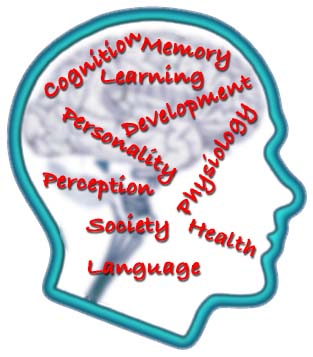Click
to
go to:
Child Psychology
Course
Objectives:
There are four major objectives:
- Students will learn facts, concepts, and theories regarding infants’, toddlers' and children’s growth in the physical-motor, perceptual-cognitive, and social-emotional domains.
- Students will determine for themselves the nature and process of
developmental change: Whether it involves one overarching process applicable to everyone
in all aspects of their lives or multiple specific processes affecting particular children
in specific ways.
- Students will apply knowledge about developmental psychology to the evaluation, observation, and the assessment of children.
- Students will gain an appreciation of the research strategies
used by developmental psychologists to test and support their claims.
Textbook:
Berk, L. (2001). Infants and children (4th
Ed.).
Boston, MA: Allyn & Bacon. Other readings, handouts, etc., will be available from the
class web site.
Grading: There will be three exams, one after each 5-week interval. The first exam is based on preliminary issues (theory, methods, issues, prenatal growth) discussed in chapters 1-4. The second exam is based on the infancy & toddlerhood chapters (chaps. 5-7) and will include material related to the Language Project (assignment 2). The third exam is based on selective aspects of the rest of the book (chaps 8-14). Each exams will be worth 15% of your final grade and will be based on the material from the lectures, assigned readings, class discussions, and the textbook. The exams will include multiple choice, short answer, and essay questions. Three written assignments will also be required. The first two assignments are each worth 10% of your final grade and the third is worth 15%. The first assignment will involve evaluating an assigned research paper and the second will entail observing a toddler's language development. The third assignment will be a Child Study, which involves assessing the physical, cognitive, and social developmental level of an infant, toddler, or child. More will be said about the projects later in the course, as each is due. There will be open book quizzes available on Chitester. Each quiz will be available for a specified period of time and and you must score above 80% to earn credit. You are able to retake the exam during the period it is available until the 80% level is reached. The proportion of quizzes completed successfully will contribute 5% towards your final grade. Your class attendance will be assessed about 10 times throughout the semester and proportion of classes attended will count 5% of final grade. Finally online (through WebCT) and in class discussion will contribute 10 of your final grade. The grade will be based on the frequency and quality of your contribution.
Distribution of Grades:
Exams(3).............................45%
Each
Exam............15%
Assignments(3).......................35%
Evaluation...........10%
Observation..........10%
Assessment...........15%
Quizzes................................5%
Online and In class Discussions.......10%
Attendance............................ 5%
Course Structure: The over-arching question, which will be a theme running throughout the course, is, "How does normal development occur?" To answer this question, we will examine growth of children in two time periods: Infancy and toddlerhood (birth to 2 years), and childhood (ages 2 to 11 years), which encompasses early and middle phases. In each age period, we will examine growth in each of three domains or spheres: The physical-motor, cognitive, and socio-emotional domain. Our examination of development will involve trying to synthesize the material regarding the development in each domain for a given time period. This will involve class discussions and working through review questions.
Course Sequence: After an initial discussion of the issues and methods of developmental psychology, we will spend about two weeks addressing prenatal growth, particularly exploring the role of gene-environment interactions in that process. Such interactions will be a basis for understanding development throughout the course. The next five weeks will address the physical-motor, perceptual-cognitive, and social-personality characteristics of infants and toddlers. The following five weeks will be spent selectively examining the physical, cognitive and social-emotional development in childhood.Class Policies: To read the policies of the class, click here.





![Horns_flags[1].gif (13748 bytes)](../../images/Horns_flags[1].gif)

